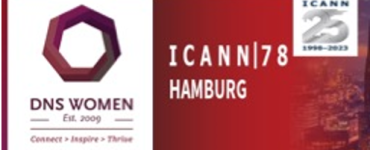- In Germany, just 8.3 percent of men encounter gender bias at work. In contrast, almost twice as many women (15.5 percent) face gender bias in their jobs
- Female leadership careers are particularly affected by bias and role stereotypes: Lack of part-time leadership positions and taking on childcare are main hurdles
- eco promotes gender equality in an initiative to advance women in tech
Women face gender-specific bias in the workplace far more often than men. These are the results of a survey conducted throughout Germany by eco – Association of the Internet Industry in cooperation with the market and opinion research institute Civey*. The survey was undertaken to mark International Women’s Day on 8 March 2022, with 2,500 people participating in this survey at the end of February and the beginning of March.
According to the survey, 15.5 percent of the women interviewed believe they are confronted with bias at work because of their gender. In contrast, only 8.3 percent of men are affected. Across genders, younger people between the ages of 18 and 39 (over 19 percent) and non-managerial employees (17.2 percent) in particular perceive gender bias in their day-to-day work. However, female leadership careers also sometimes fail due to bias and gender-specific role models. According to the respondents, the main obstacles to female leadership careers are the lack of part-time leadership opportunities and childcare responsibilities. 41.9 percent of women see childcare as a causal factor, which is also acknowledged by 32.2 percent of men. This year’s International Women’s Day is marked by the motto #BreakTheBias and aims to dispel gender stereotypes and advocate for a working world free of stereotypes, bias and discrimination.
Multiple factors stand in the way of women in leadership positions
Less than 1 in 5 of employees in the German IT industry are women.** The gender gap is even greater in the executive suites. According to the respondents, the main factors holding women back from leadership positions are: firstly, the fact that such positions are rarely occupied by staff members working outside of the traditional 40-hour week (with 38.3 percent of respondents seeing this as a key factor); and, secondly, that women are responsible for childcare (37.2 percent highlighted this as a factor). The third most frequent reason cited is a personnel policy that tends to keep men to themselves in executive positions. Around one in four respondents (26.5 percent) believe that men are given preference in promotions to leadership positions by the company’s internal HR policy. This is attested to by 30.5 percent of women and 22.2 percent of men.
“There is a whole range of traditional role stereotypes that prevent women from moving up the ranks. For example, women are still often considered to be less technically gifted, too emotional, and not assertive enough for leadership roles. To counteract these biases, concrete measures are needed, such as objective, professional criteria in personnel decision-making processes, or unconscious bias training for managers,” says Lucia Falkenberg, Chief People Officer at eco Association and DE-CIX Group AG. Companies would also be well-advised to enable leadership positions to be built into contemporary hybrid work models, shorter-term full-time jobs or job sharing, in order to fill executive positions in a more gender-equitable way.
The issue of more women in leadership is not only moving into the spotlight on the political stage and the media agenda; it is also playing an increasingly important role for applicants and candidates. “If you want to attract good digital talent, you have to take a clear position on diversity and make women visible at all job levels – and that applies especially to leadership positions,” says Falkenberg. The Internet industry has always been one of the drivers and innovators of New Work models that make it easier to balance family and career, and is also particularly attractive because of the wide range of career and promotion opportunities it offers. “Numerous new and crisis-proof jobs are emerging in the digital industry, such as that of chief information officer. These positions are newly created and also offer excellent career prospects for tech-savvy career changers and their teams. Women who hold such positions in the Internet industry can move up relatively quickly and have a lot of room to manoeuvre,” adds Falkenberg.
eco promoting women in tech via the #LiT – Ladies in Tech initiative
In spring 2019, the eco Association founded the initiative “#LiT – Ladies in Tech”, which offers female specialists and managers in the digital industry or in digital professions a platform for exchange. With this initiative, the eco Association wants to give women in the Internet industry a face and a voice. With the participation of strong partners from business and society, the initiative is committed to making women from all digital disciplines more visible, promoting their active participation in shaping the digital transformation, and counteracting the shortage of skilled workers in the long term.
More about the initiative at https://lit.eco.de
* The opinion research company Civey surveyed 2,500 people on behalf of eco Association between 25.02.22 and 26.02.2022 and between 01.03.22 and 02.03.22 respectively. The results are representative of citizens of Germany aged 18 and over. The statistical error of the overall results is 3.5 percent and 3.4 percent respectively.
** Study “Women in Tech Across the Globe”, eco – Association of the Internet Industry
Visuals:
Do you perceive bias or prejudice based on your gender in your professional environment?
Evaluation
Evaluation gender women
Which of these hurdles do you think make it most difficult for women to take on leadership positions?
Evaluation
Evaluation gender women




